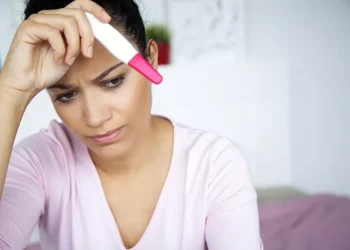Conceiving twins is a fascinating topic for many prospective parents. While some aspects of having twins are beyond our control, certain factors and strategies may influence the likelihood of conceiving more than one baby. This article provides a detailed look at how you might increase your chances of having twins, covering both natural and assisted methods.
Introduction to Conceiving Twins
Twins can occur either through the release of two eggs during ovulation (fraternal twins) or the splitting of a single fertilized egg into two embryos (identical twins). While some factors influencing twin conception are genetic or inherent, there are lifestyle choices and medical interventions that may enhance your chances of having twins.
Genetic Factors
Family History
One of the most significant factors influencing the likelihood of conceiving twins is family history. Women who have a family history of twins, especially on their mother’s side, may have a higher chance of conceiving twins themselves. This is particularly true for fraternal twins, as the tendency to release multiple eggs during ovulation can be inherited.
Age
Age plays a crucial role in the likelihood of conceiving twins. Women who are over the age of 30, particularly those between 35 and 40, have a higher chance of conceiving twins. This is because older women tend to have higher levels of follicle-stimulating hormone (FSH), which increases the likelihood of releasing more than one egg during ovulation.
Diet and Lifestyle Factors
Dietary Influences
Certain dietary factors may also play a role in increasing your chances of conceiving twins. Consuming a diet rich in dairy products has been linked to a higher likelihood of having twins. The exact reason is not entirely clear, but it is believed that the hormones present in dairy products might influence ovulation. Additionally, a balanced diet that includes a variety of nutrients can support overall reproductive health.
Body Weight
Maintaining a healthy body weight can impact your chances of conceiving twins. Some studies suggest that women with a higher body mass index (BMI) are more likely to conceive twins. However, it is essential to approach weight management with a focus on overall health rather than aiming for a specific BMI solely for the purpose of increasing the chance of twins.
Medical Interventions
Fertility Treatments
Certain fertility treatments can increase the likelihood of conceiving twins. Medications such as clomiphene citrate and letrozole are commonly used to stimulate ovulation and may increase the chances of releasing more than one egg. These medications are often prescribed to women with irregular ovulation or those undergoing fertility treatments.
In Vitro Fertilization (IVF)
In vitro fertilization (IVF) involves the fertilization of eggs outside the body, which are then implanted into the uterus. During IVF treatments, multiple embryos are often implanted to increase the chances of a successful pregnancy. This can result in a higher likelihood of conceiving twins or even higher-order multiples.
Hormonal Treatments
Certain hormonal treatments, such as gonadotropins, are used to stimulate ovarian function and increase the likelihood of releasing multiple eggs. These treatments are often part of assisted reproductive technologies and may be used in combination with other fertility medications.
Preconception Strategies
Prenatal Vitamins
Taking prenatal vitamins before conception can help improve overall reproductive health. While prenatal vitamins are not specifically linked to conceiving twins, they ensure that you have the necessary nutrients to support a healthy pregnancy. Folic acid, in particular, is crucial for preventing birth defects and supporting fetal development.
Regular Exercise
Maintaining a healthy level of physical activity can support overall fertility and reproductive health. While regular exercise alone may not directly increase the chances of conceiving twins, it contributes to a healthy lifestyle that supports optimal reproductive function.
see also: What Can Cause a Woman Not to Be Pregnant
Understanding the Risks
Medical Supervision
If you are considering methods to increase your chances of conceiving twins, it is essential to consult with a healthcare provider or fertility specialist. Some fertility treatments can increase the risk of complications, such as high-order multiples, which may pose risks to both the mother and babies. Medical supervision ensures that any interventions are appropriate for your specific health conditions and reproductive goals.
Health Considerations
It’s important to be aware of the potential health implications associated with carrying multiples. Pregnancies with twins or higher-order multiples are often considered higher risk and may require additional monitoring and care. Discussing these risks with your healthcare provider can help you make informed decisions about fertility treatments and reproductive health.
Conclusion
Increasing your chances of conceiving twins involves a combination of understanding genetic factors, making certain lifestyle choices, and potentially utilizing medical interventions. While some factors, such as family history and age, are beyond your control, maintaining a healthy lifestyle and exploring fertility treatments may enhance your likelihood of having twins.
Consulting with a healthcare provider or fertility specialist is crucial for navigating the options available and understanding the associated risks. By taking a comprehensive approach to reproductive health and seeking professional guidance, you can make informed decisions and optimize your chances of achieving your family planning goals.
Related topics:



























